What are Metal Stocks?
Metal stocks represent shares in companies engaged in the exploration, production, processing, and distribution of various metals, including steel, aluminum, copper, and zinc. These companies may operate mines, smelters, refineries, and other facilities essential for metal extraction and processing. Investing in metal stocks offers exposure to the performance of the metal industry. Investors can choose from individual stocks, ETFs, mutual funds, commodity futures, or options contracts linked to metal prices.
Metal Industry Overview
The metals industry is a sub-sector of the materials sector. Just like the materials sector, the metals industry is sensitive to global economic conditions, interest rates, and commodity prices. Metal companies can be classified into two categories: industrial metals and precious metals. Industrial metals are sensitive to global economic conditions, while precious metals tend to have an inverse relationship with the economy.
In recent years, the metals industry has seen significant advancements in technology and sustainability practices. Companies are increasingly adopting eco-friendly methods to reduce their carbon footprint and improve efficiency. This shift towards sustainable practices not only helps in meeting regulatory requirements but also enhances the industry’s appeal to environmentally conscious investors.
Investing in Metal Stocks
Investing in metal stocks can be a strategic way to hedge against economic uncertainty and inflation. These stocks not only serve as a store of value but also offer diversification benefits for your portfolio. There are multiple avenues to invest in metal stocks, such as purchasing individual stocks, material exchange-traded funds (ETFs), mutual funds, commodity futures, or options contracts linked to metal prices. When evaluating metal stocks, investors should assess the company’s cost structure, diversification, and management team.
Investing in metal stocks comes with certain risks. Metal prices can be highly volatile due to factors such as changes in the economy, Federal Reserve policy, investor demand, mining supply, and inflation. This volatility can significantly impact the stock prices of metal companies.
If you invest in physical metals, like through a material ETF, you need to consider the costs associated with storing and insuring these assets. These additional expenses can eat into your overall investment returns. In an ETF, these costs may be hidden within the P&L of a mining or storage company held by the ETF.
Metal Stock Megatrends
Increasing demand for electric vehicles (EVs) and renewable energy. This trend is driving up the demand for metals such as lithium, cobalt, nickel, and copper, which are essential for the production of batteries and other components used in EVs and renewable energy systems.

Titanium used on a motorcycle. Image by MathieuGallion from Pixabay
Advanced materials that promote lightweighting are becoming more popular in the aerospace and automotive industries. This trend is driving demand for metals like titanium and aluminum, which are known for their strength-to-weight ratio.
The Digital Transformation and Industry 4.0 megatrend is integrating advanced technologies into sub-trends such as the Internet of Things (IoT) and artificial intelligence (AI) in manufacturing processes. This is leading to more efficient and cost-effective production of metals. This trend is enhancing the competitiveness of metal stocks.
Top Steel Stocks to Invest in

United States Steel Corporation (X): A major player in the steel industry, known for producing flat-rolled and tubular steel products.
Nucor Corporation (NUE) is One of the largest steel producers in the U.S. and known for its diversified product range and strong financial performance. As a leading steel producer, Nucor benefits from strong demand in the construction and manufacturing sectors. The company’s consistent dividend payouts and solid earnings growth make it an attractive option for investors seeking stability and potential appreciation. [With a forward-thinking approach, including investments in sustainable steel production, NUE stock is well-positioned to capitalize on future market trends.
Steel Dynamics Inc. (STLD) is a leading steel producer with a focus on sustainability and innovation. As one of the largest domestic steel producers, Steel Dynamics also benefits from robust demand in the construction and manufacturing sectors. The company reported net sales of $4.6 billion and operating income of $559 million in Q2 2024. With a forward P/E ratio of 12.11 and a dividend yield of 1.52%, STLD offers both stability and potential appreciation.
Cleveland-Cliffs Inc. (CLF) is a major supplier of iron ore pellets and a producer of flat-rolled steel. The company is a strong long-term investment due to its strategic acquisitions and robust financial performance. The company recently reported Q2 2024 revenues of $5.1 billion and has a forward P/E ratio of 20.18. CLF’s acquisition of Stelco Holdings for $2.5 billion expands its footprint in the North American steel market.
ArcelorMittal SA (MT) is headquartered in Luxembourg but it has significant operations in the U.S. and is a key player in the global steel market. The company is a strong long-term investment due to its solid financial performance and strategic growth initiatives. The company reported Q2 2024 revenues of $68.28 billion and a net income of $919 million. With a forward P/E ratio of 6.60 and a dividend yield of 2.25%, MT offers both stability and potential appreciation. Additionally, ArcelorMittal’s investments in sustainable steel production and its global presence position it well for future market trends.
Precious Metal Stocks
Investing in precious metal stocks can be a lucrative opportunity for those looking to diversify their portfolios and hedge against economic uncertainties. Companies in this sector often have strong fundamentals and promising growth prospects, driven by their valuable assets and strategic operations. Some of the top-performing precious metal stocks include Silvercrest Metals, Triple Flag Precious Metals, and McEwen Mining, each with unique strengths and potential for sustained growth.
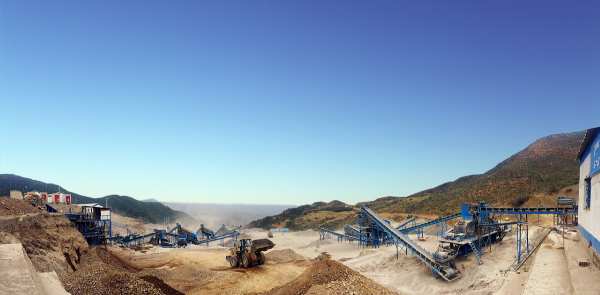
Silvercrest Metals (SILV) is a top precious metal stock with strong fundamentals.
The stock has consistently demonstrated strong financial performance, with significant earnings beats in recent quarters. The company’s forward P/E ratio of 14.06 indicates a reasonable valuation relative to its earnings potential.
The company’s primary asset, the Las Chispas Mine in Sonora, Mexico, is a high-grade silver-gold project with substantial reserves. This mine, along with other properties like El Picacho and Cruz de Mayo, positions SilverCrest for sustained growth.
Triple Flag Precious Metals (TFPM) focuses on precious metal streaming and royalty investments. The company boasts a diversified portfolio of high-quality assets, including gold, silver, and other precious metals. This diversification reduces risk and enhances the stability of its revenue streams.
McEwen Mining (MUX) is involved in the exploration and production of precious metals. The Mining company has a diversified portfolio of gold, silver, and copper assets across the United States, Canada, Mexico, and Argentina. This diversification reduces risk and enhances the stability of its revenue streams.
The company’s flagship projects, such as the Los Azules Copper Project in Argentina and the Fox Complex in Canada, are expected to drive significant growth. These projects have substantial reserves and are positioned to benefit from rising commodity prices.
Should you invest in metal stocks or Physical Precious Metal?
Choosing between metal stocks and physical metals depends on your investment goals, risk tolerance, and preference for tangible versus paper assets. Both options can be valuable additions to a diversified investment portfolio. Investing in metal stocks versus physical metals each has its own advantages and considerations:
The Pros of Metal Stocks
Liquidity: Metal stocks are generally more liquid, allowing for easier buying and selling. Some metal stocks offer dividends, providing a regular income stream. Investing in metal stocks can also provide exposure to a variety of companies and sectors within the metals industry.
Finally, storage and Insurance is a big concern when it comes to physical precious metal. With stocks, there is no need to worry about the physical storage and insurance costs associated with holding physical metals.
The Pros of Physical Metals
Physical metals are tangible assets that you can hold and store personally. Physical metal is a hedge against inflation. Physical metals, especially gold and silver, are often seen as a hedge against inflation and economic uncertainty.
And as an inverse to the storage and insurance problem, physical metal has no counterparty risk. Owning physical metals means you don’t have to rely on a company’s performance or management.
Is gold or silver a better investment?
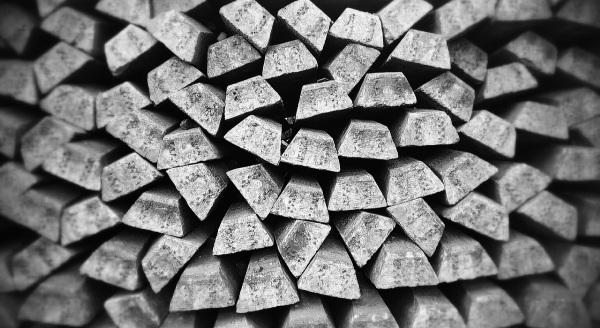
Bullion Bars Stacked. Image by tookapic from Pixabay
Silver is a better investment in 2024. Silver is significantly cheaper than gold, making it more accessible to a broader range of investors.
Silver has extensive industrial applications, including electronics, solar panels, and medical devices. This diverse demand can drive its price higher. Silver’s lower price point means it has more room for percentage gains. Historically, silver has shown higher volatility, offering greater potential for short-term gains. Finally, the push for renewable energy has significantly boosted silver demand, especially in solar panel production.
While gold remains a stable and less volatile investment, silver’s affordability and growth potential make it a more attractive option for investors seeking higher returns in 2024.
rare earth metals stocks
Rare earth metals stocks are gaining attention due to their critical role in modern technologies like smartphones, electric vehicles, and defense systems, as well as the push for renewable energy. Leading companies in this sector include MP Materials, Energy Fuels, and NioCorp Developments. China’s dominance in rare earth production has prompted countries like the US, Canada, and Australia to enhance their own mining and processing efforts. Additionally, US tariffs on Chinese rare earth magnets could benefit non-Chinese rare earth stocks. Investing in rare earth metals stocks offers growth potential, driven by increasing demand for green technologies and the geopolitical push for supply chain security.
Read More: What Materials Should I Invest in?
Metal Industry in India

India, rich in a variety of minerals, is one of the world’s top metal producers and the third-largest steel producer with a capacity of 142.3 million metric tons annually (MTPA). The metal industry in India is poised for significant growth, driven by increasing demand from the construction, manufacturing, and technology sectors.
For investors looking for growth opportunities, metal companies in India may be the next opportunity moving into the rest of the 2020s.
The Nifty Metal Index
The Nifty Metal Index is a prominent stock market index representing the performance of metal and mining companies listed on the National Stock Exchange (NSE) in India. Serving as a benchmark for the metal industry, the index provides a comprehensive measure of the performance of metal stocks, reflecting the sector’s overall health and trends.
Key constituents of the Nifty Metal Index include Tata Steel Ltd, a global leader in steel manufacturing with operations in nearly 50 countries and an annual crude steel capacity of 34 million metric tons. Hindustan Zinc Ltd is a major Indian mining company producing zinc, lead, and silver. JSW Steel Ltd, part of the diversified JSW Group, operates across sectors like energy, infrastructure, and cement. NMDC Ltd, a Navratna enterprise under the Ministry of Steel, is a significant public sector undertaking in India. Hindalco Industries is also a notable member of this index.
Final Thoughts
Investing in metal stocks offers a strategic opportunity to hedge against economic uncertainties and inflation while diversifying your portfolio. With multiple investment avenues such as individual stocks, ETFs, mutual funds, commodity futures, and options contracts, investors can tailor their approach based on their risk tolerance and investment goals. However, it’s crucial to consider the inherent volatility of metal prices and the associated risks, including storage and insurance costs for physical metals.
Finally, the metals industry in India is continually expanding, becoming a new opportunity for investors to consider. The Nifty Metal Index is a great starting point for new investors to investigate these investment opportunities.
🏗 General
🔨 Construction Stocks
🌲 Lumber Stocks
🌎 International Material Stocks
🏭 What are Material Stocks
🪙 Copper Stocks
⚙️ Metal Stocks
💰 Material Stocks with Dividends
🏭 Industrial Gas Stocks
🌍 Rare Earth Stocks
🔬 Advanced Materials













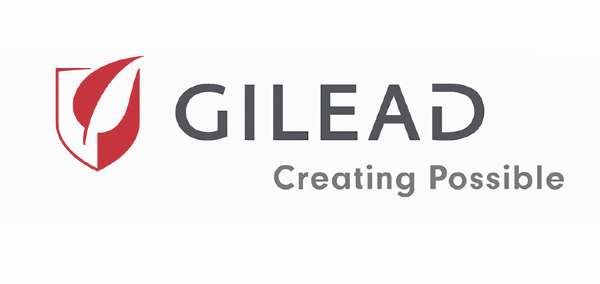



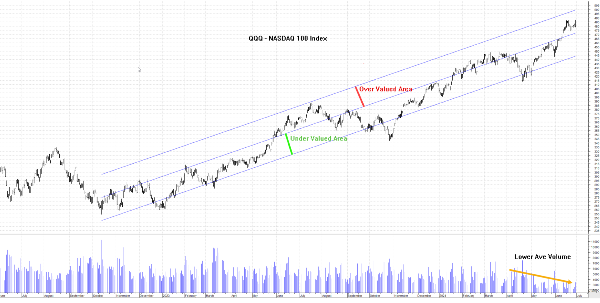

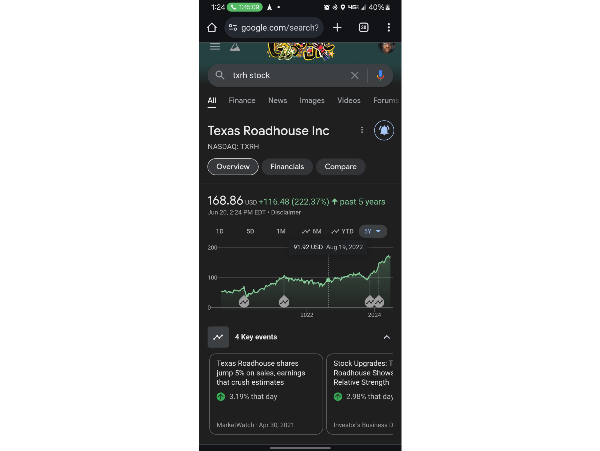


Cover Image by Chris Wiedenhoff from Pixabay
What are Metal Stocks?
Metal stocks represent shares in companies engaged in the exploration, production, processing, and distribution of various metals, including steel, aluminum, copper, and zinc. These companies may operate mines, smelters, refineries, and other facilities essential for metal extraction and processing. Investing in metal stocks offers exposure to the performance of the metal industry. Investors can choose from individual stocks, ETFs, mutual funds, commodity futures, or options contracts linked to metal prices.
Metal Industry Overview
The metals industry is a sub-sector of the materials sector. Just like the materials sector, the metals industry is sensitive to global economic conditions, interest rates, and commodity prices. Metal companies can be classified into two categories: industrial metals and precious metals. Industrial metals are sensitive to global economic conditions, while precious metals tend to have an inverse relationship with the economy.
In recent years, the metals industry has seen significant advancements in technology and sustainability practices. Companies are increasingly adopting eco-friendly methods to reduce their carbon footprint and improve efficiency. This shift towards sustainable practices not only helps in meeting regulatory requirements but also enhances the industry’s appeal to environmentally conscious investors.
Investing in Metal Stocks
Investing in metal stocks can be a strategic way to hedge against economic uncertainty and inflation. These stocks not only serve as a store of value but also offer diversification benefits for your portfolio. There are multiple avenues to invest in metal stocks, such as purchasing individual stocks, material exchange-traded funds (ETFs), mutual funds, commodity futures, or options contracts linked to metal prices. When evaluating metal stocks, investors should assess the company’s cost structure, diversification, and management team. Investing in metal stocks comes with certain risks. Metal prices can be highly volatile due to factors such as changes in the economy, Federal Reserve policy, investor demand, mining supply, and inflation. This volatility can significantly impact the stock prices of metal companies.
If you invest in physical metals, like through a material ETF, you need to consider the costs associated with storing and insuring these assets. These additional expenses can eat into your overall investment returns. In an ETF, these costs may be hidden within the P&L of a mining or storage company held by the ETF.
Metal Stock Megatrends
Increasing demand for electric vehicles (EVs) and renewable energy. This trend is driving up the demand for metals such as lithium, cobalt, nickel, and copper, which are essential for the production of batteries and other components used in EVs and renewable energy systems.
Titanium used on a motorcycle. Image by MathieuGallion from Pixabay
Advanced materials that promote lightweighting are becoming more popular in the aerospace and automotive industries. This trend is driving demand for metals like titanium and aluminum, which are known for their strength-to-weight ratio.
The Digital Transformation and Industry 4.0 megatrend is integrating advanced technologies into sub-trends such as the Internet of Things (IoT) and artificial intelligence (AI) in manufacturing processes. This is leading to more efficient and cost-effective production of metals. This trend is enhancing the competitiveness of metal stocks.
Top Steel Stocks to Invest in
Image by Fabien from Pixabay
United States Steel Corporation (X): A major player in the steel industry, known for producing flat-rolled and tubular steel products.
Nucor Corporation (NUE) is One of the largest steel producers in the U.S. and known for its diversified product range and strong financial performance. As a leading steel producer, Nucor benefits from strong demand in the construction and manufacturing sectors. The company’s consistent dividend payouts and solid earnings growth make it an attractive option for investors seeking stability and potential appreciation. [With a forward-thinking approach, including investments in sustainable steel production, NUE stock is well-positioned to capitalize on future market trends.
Steel Dynamics Inc. (STLD) is a leading steel producer with a focus on sustainability and innovation. As one of the largest domestic steel producers, Steel Dynamics also benefits from robust demand in the construction and manufacturing sectors. The company reported net sales of $4.6 billion and operating income of $559 million in Q2 2024. With a forward P/E ratio of 12.11 and a dividend yield of 1.52%, STLD offers both stability and potential appreciation.
Cleveland-Cliffs Inc. (CLF) is a major supplier of iron ore pellets and a producer of flat-rolled steel. The company is a strong long-term investment due to its strategic acquisitions and robust financial performance. The company recently reported Q2 2024 revenues of $5.1 billion and has a forward P/E ratio of 20.18. CLF’s acquisition of Stelco Holdings for $2.5 billion expands its footprint in the North American steel market.
ArcelorMittal SA (MT) is headquartered in Luxembourg but it has significant operations in the U.S. and is a key player in the global steel market. The company is a strong long-term investment due to its solid financial performance and strategic growth initiatives. The company reported Q2 2024 revenues of $68.28 billion and a net income of $919 million. With a forward P/E ratio of 6.60 and a dividend yield of 2.25%, MT offers both stability and potential appreciation. Additionally, ArcelorMittal’s investments in sustainable steel production and its global presence position it well for future market trends.
Precious Metal Stocks
Investing in precious metal stocks can be a lucrative opportunity for those looking to diversify their portfolios and hedge against economic uncertainties. Companies in this sector often have strong fundamentals and promising growth prospects, driven by their valuable assets and strategic operations. Some of the top-performing precious metal stocks include Silvercrest Metals, Triple Flag Precious Metals, and McEwen Mining, each with unique strengths and potential for sustained growth.
Image by shibang from Pixabay
Silvercrest Metals (SILV) is a top precious metal stock with strong fundamentals.
The stock has consistently demonstrated strong financial performance, with significant earnings beats in recent quarters. The company’s forward P/E ratio of 14.06 indicates a reasonable valuation relative to its earnings potential.
The company’s primary asset, the Las Chispas Mine in Sonora, Mexico, is a high-grade silver-gold project with substantial reserves. This mine, along with other properties like El Picacho and Cruz de Mayo, positions SilverCrest for sustained growth.
Triple Flag Precious Metals (TFPM) focuses on precious metal streaming and royalty investments. The company boasts a diversified portfolio of high-quality assets, including gold, silver, and other precious metals. This diversification reduces risk and enhances the stability of its revenue streams.
McEwen Mining (MUX) is involved in the exploration and production of precious metals. The Mining company has a diversified portfolio of gold, silver, and copper assets across the United States, Canada, Mexico, and Argentina. This diversification reduces risk and enhances the stability of its revenue streams. The company’s flagship projects, such as the Los Azules Copper Project in Argentina and the Fox Complex in Canada, are expected to drive significant growth. These projects have substantial reserves and are positioned to benefit from rising commodity prices.
Should you invest in metal stocks or Physical Precious Metal?
Choosing between metal stocks and physical metals depends on your investment goals, risk tolerance, and preference for tangible versus paper assets. Both options can be valuable additions to a diversified investment portfolio. Investing in metal stocks versus physical metals each has its own advantages and considerations:
The Pros of Metal Stocks
Liquidity: Metal stocks are generally more liquid, allowing for easier buying and selling. Some metal stocks offer dividends, providing a regular income stream. Investing in metal stocks can also provide exposure to a variety of companies and sectors within the metals industry.
Finally, storage and Insurance is a big concern when it comes to physical precious metal. With stocks, there is no need to worry about the physical storage and insurance costs associated with holding physical metals.
The Pros of Physical Metals
Physical metals are tangible assets that you can hold and store personally. Physical metal is a hedge against inflation. Physical metals, especially gold and silver, are often seen as a hedge against inflation and economic uncertainty.
And as an inverse to the storage and insurance problem, physical metal has no counterparty risk. Owning physical metals means you don’t have to rely on a company’s performance or management.
Is gold or silver a better investment?
Bullion Bars Stacked. Image by tookapic from Pixabay
Silver is a better investment in 2024. Silver is significantly cheaper than gold, making it more accessible to a broader range of investors.
Silver has extensive industrial applications, including electronics, solar panels, and medical devices. This diverse demand can drive its price higher. Silver’s lower price point means it has more room for percentage gains. Historically, silver has shown higher volatility, offering greater potential for short-term gains. Finally, the push for renewable energy has significantly boosted silver demand, especially in solar panel production.
While gold remains a stable and less volatile investment, silver’s affordability and growth potential make it a more attractive option for investors seeking higher returns in 2024.
rare earth metals stocks
Rare earth metals stocks are gaining attention due to their critical role in modern technologies like smartphones, electric vehicles, and defense systems, as well as the push for renewable energy. Leading companies in this sector include MP Materials, Energy Fuels, and NioCorp Developments. China’s dominance in rare earth production has prompted countries like the US, Canada, and Australia to enhance their own mining and processing efforts. Additionally, US tariffs on Chinese rare earth magnets could benefit non-Chinese rare earth stocks. Investing in rare earth metals stocks offers growth potential, driven by increasing demand for green technologies and the geopolitical push for supply chain security.
Metal Industry in India
Open pit mining. Image by Chris Wiedenhoff from Pixabay
India, rich in a variety of minerals, is one of the world’s top metal producers and the third-largest steel producer with a capacity of 142.3 million metric tons annually (MTPA). The metal industry in India is poised for significant growth, driven by increasing demand from the construction, manufacturing, and technology sectors. For investors looking for growth opportunities, metal companies in India may be the next opportunity moving into the rest of the 2020s.
The Nifty Metal Index
The Nifty Metal Index is a prominent stock market index representing the performance of metal and mining companies listed on the National Stock Exchange (NSE) in India. Serving as a benchmark for the metal industry, the index provides a comprehensive measure of the performance of metal stocks, reflecting the sector’s overall health and trends.
Key constituents of the Nifty Metal Index include Tata Steel Ltd, a global leader in steel manufacturing with operations in nearly 50 countries and an annual crude steel capacity of 34 million metric tons. Hindustan Zinc Ltd is a major Indian mining company producing zinc, lead, and silver. JSW Steel Ltd, part of the diversified JSW Group, operates across sectors like energy, infrastructure, and cement. NMDC Ltd, a Navratna enterprise under the Ministry of Steel, is a significant public sector undertaking in India. Hindalco Industries is also a notable member of this index.
Final Thoughts
Investing in metal stocks offers a strategic opportunity to hedge against economic uncertainties and inflation while diversifying your portfolio. With multiple investment avenues such as individual stocks, ETFs, mutual funds, commodity futures, and options contracts, investors can tailor their approach based on their risk tolerance and investment goals. However, it’s crucial to consider the inherent volatility of metal prices and the associated risks, including storage and insurance costs for physical metals. Finally, the metals industry in India is continually expanding, becoming a new opportunity for investors to consider. The Nifty Metal Index is a great starting point for new investors to investigate these investment opportunities.
🏗 General
🔨 Construction Stocks
🌲 Lumber Stocks
🌎 International Material Stocks
🏭 What are Material Stocks
🪙 Copper Stocks
⚙️ Metal Stocks
💰 Material Stocks with Dividends
🏭 Industrial Gas Stocks
🌍 Rare Earth Stocks
🔬 Advanced Materials